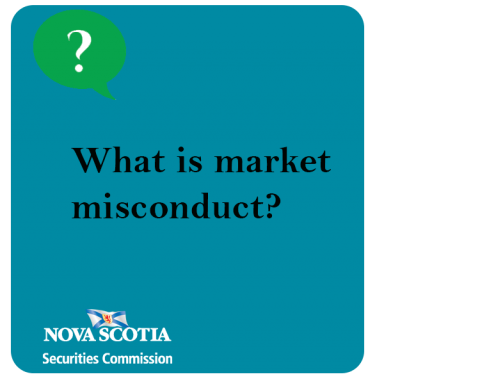Submitted by nsscadmin on

During Fraud Prevention Month in March we will be taking a closer look at some forms of market misconduct. Not all forms of market misconduct are frauds, but many do, or can be used to commit some kind of investment fraud.
Over the next few weeks, we will focus on:
- Disclosure Violations
- Investment Fraud
- Illegal Distributions
- Insider Trading
- Market Manipulation
- Registrant Misconduct
Watch for a new post on each of these topics every Wednesday for the next six weeks. Today we start with disclosure violations.
The typical victim when it comes to disclosure violations are shareholders. Under securities laws investors must receive timely and accurate information from public companies to allow them to make informed investment decisions. Public companies must provide this information, meeting specific standards and deadlines around disclosure. We looked at this in a previous blog post on how issuers are regulated.
You can review that post for a more comprehensive summary of what a public company must provide to meet their disclosure obligations. If a company fails to meet these obligations, or is suspected to have violated their disclosure obligations they could be investigated and have sanctions ordered against them.
For example, in the last few month the Nova Scotia Securities Commission has issued two cease trade orders against issuers due to continuous disclosure violations. These cease trade orders remain in effect until the company remedies the situation by filing the necessary disclosure documents.
